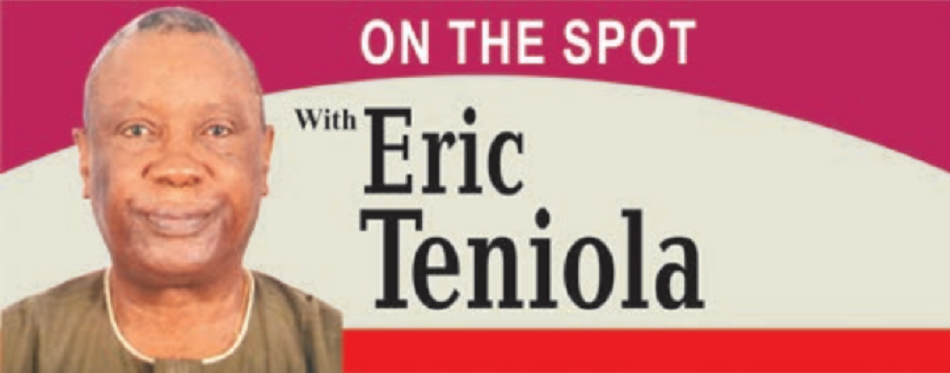
By Eric Teniola
From last week, the piece decries the prevalence of poverty in Nigeria in spite of the country’s immense wealth, saying this can be attributed to many factors.
THE most important among these factors are poor policy formulation, without setting achievable targets; policy discontinuity and lack of sustainability; inadequate consideration of the actual needs and aspirations of the poor, due to adoption of top-down approach; lack of an appropriate institutional framework and delivery machinery; over policitisation and bureaucratisation of service delivery and the absence of a policy framework, which provides overall direction and guidance for poverty eradication efforts of various actors.
Indeed, one of the greatest obstacles to the success of poverty alleviation policies and programmes in Nigeria has been lack of co-ordination. Also, there has been no complementation in the activities of the various institutions, agencies, and tiers of government working in this area. This has resulted in duplication of efforts, wastage of resources, unhealthy rivalries and working at cross purposes.
Poverty has generally been conceptualised and defined either in absolute or relative terms. In any case, it is associated with the conditions under which people live. Absolute poverty denotes a condition in which a person or group of persons are unable to satisfy their most basic and elementary requirements of human survival in terms of food and other fundamental needs. Relative poverty, on the other hand, is defined in the context of well-established living standards in a particular society. In this context, any person or group of persons who fall below that established standard of living is considered poor.
A poverty line is usually the starting point of measuring the incidence of poverty and analyzing it. It can be absolute or relative, and it can be national or international. In developing countries such as Nigeria, relative and international poverty lines are useful in classifying the poor and non-poor, only and especially when actual data has not been compiled to allow for the determination of national poverty line. With or without oil, Nigeria has no reason whatsoever to be poor. And Nigerians have no reasons to be in this present position.
A number of intervention policies, programmes and projects have been introduced by the Federal Government to fight poverty and facilitate the development process over the years. In the period 1970 to 1980, the intervention programmes introduced included the following: Operation Feed the Nation/Green Revolution, Universal Primary Education, Low Cost Housing Scheme, Adult Education Scheme, Rural Electrification Scheme, Rural Banking Schemes, Agricultural Development Programme, River Basin Development Authorities, Rural and Urban Water Supply Schemes, Small Holder Credit Schemes, Mass Transport Schemes, Healthcare Schemes for Sanitation, Immunisation and other services.
I must also mention the Directorate of Food, Roads and Rural Infrastructure, DFFRI. It was a directorate established by General Ibrahim Babangida on April 1, 1987 under Decree No 4. The pioneer and only Chairman of the directorate then was Air Vice Marshal Lawrence Koinyan from Sagbama Local Government Area of Bayelsa State. He was born on May 31, 1942 in Trofani in the present day Bayelsa State.
He attended Stella Maris College, Port Harcourt, 1957-1962; Nigerian Military Training College, April-June 1966; Squadron Officers’ School, US Air force, 1974; Command and Staff College, Jaji, 1979; National Defence College, New Delhi, 1983; joined Nigerian Air Force, NAF, 1963; attached to 4 Area Command , Nigerian Army, Benin, 1966-1968; adjutant, NAF Military Airlift Wing, Ikeja, 1968; later Officer Commanding, C Squadron NAF Port Harcourt, 1972-1975; Director of Supply, NAF Headquarters, 1979-1982; Deputy Commandment, Nigerian Defence Academy, Kaduna, 1982; promoted Air Commodore, 1983; member Supreme Military Council, 1984-1985; appointed air officer in charge of logistics, 1984; also appointed member, Armed Forces Ruling Council, 1985-1989.
When General Ibrahim Babangida (81) created DFFRI, it was with good intentions. The next President must revive the spirit of DFFRI, so as to help those in the rural areas. The spirit of DFRRI at that time was to (a) identify, involve and support viable local community organisations in the effective mobilisation of the rural population for sustained rural development activities, bearing in mind the need for promoting greater community participation and economic self- reliance of the rural community;
(b) to identify areas of high production potential for the country’s priority food and fibre requirement and to support production of such commodities along agro-ecological zones within the content of one national market with unimpeded inter-state trade in farm produce;
(c) to formulate and support a national rural feeder and network programme involving construction, rehabilitation, improvement and maintenance especially in relation to the nation’s food self-sufficiency programme as well as general rural development;
(d) to formulate and support a national rural water supply programme together with a national on-farm storage programme with emphasis on full initial involvement to local communities and Local Government personnel to ensure sustained maintenance of built infrastructures;
(e)to identify and promote other programmes that would enhance greater productive economic activities in the rural areas as well as help to improve the quality of life and standard of living of the rural people.
(f) to encourage contribution of labour, time and materials by local communities to be complemented by a system of matching grants from the Directorate, Local and State Governments;
(g) to support the development of an information gathering, maintenance and evaluation of culture in rural development programming, with emphasis on utilization of existing agencies with demonstrated competence in the area of management information system in agriculture and rural infrastructures, agronomy, agricultural extension, including the continuous generation of basic data on rural infrastructures in each of the Local Government areas in Nigeria.
To be continued…
Disclaimer
Comments expressed here do not reflect the opinions of Vanguard newspapers or any employee thereof.